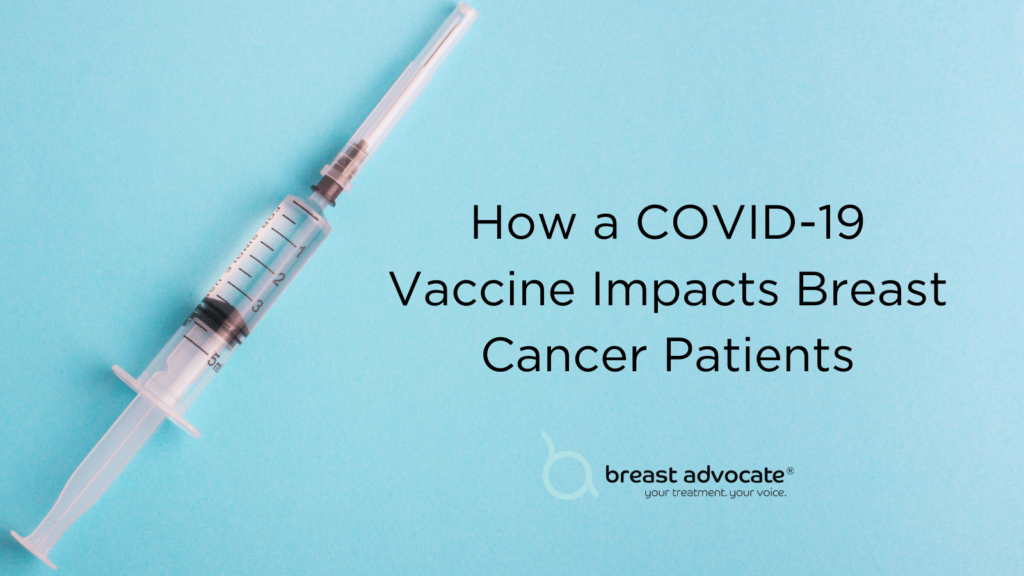How a COVID-19 Vaccine Will Impact Patients With Breast Cancer
This week, news broke that the drug company Pfizer has developed a vaccine for COVID-19. Pfizer and its partner company BioNTech reported that “individuals who received two injections of the vaccine three weeks apart experienced more than 90% fewer cases of symptomatic Covid-19 than those who received a placebo.” So far, Pfizer and BioNTech have reported no serious safety concerns.

The Phase 3 study is ongoing and additional data is still being collected. The effectiveness of a vaccine can only truly be determined once millions of people are vaccinated. However, experts say that the preliminary data indicates that the effectiveness should be very high. Pfizer will be seeking emergency use authorization from the FDA and anticipates having 50 million vaccine doses globally this year, and 1.3 billion next year.
The news of a vaccine is obviously fantastic. As many of us struggle to find balance in this new world, the feeling of hope that a vaccine brings is most welcomed right now. Despite this being one of the most rapidly developed vaccines in history, “COVID-19 fatigue” still makes it feel overdue.
Since this particular vaccine needs to be stored in extremely cold temperatures (-94°F), distribution headaches will need to be overcome before it can reach communities, starting with highest-risk populations. Unfortunately, it may be that many people outside urban areas and major medical centers have to wait for other vaccines to work their way through the development pipeline because of this refrigeration requirement.
As vaccines begin to roll out, patients with breast cancer will hopefully be able to be among the patients who benefit.
Routine Screenings, Diagnostic Tests and Clinic Visits
So many individuals, either with a history of breast cancer or a genetic predisposition to developing cancer, have either skipped or delayed their screening appointments due to fears of contracting the coronavirus. The full impact of these delays will likely not be known for many months to come, but doctors are urging patients to return to their normal screening schedules. Likewise, diagnostic tests and necessary in-person clinic visits (eg for infusions) should continue. Currently, hospitals, medical clinics, and doctor’s offices have protocols in place to decrease the risk of exposure and spread of this virus as much as possible. Healthcare workers are doing their best to give patients confidence in these safety measures, but a vaccine would go a long way in minimizing risk and easing fears further.
Surgery Scheduling
During the COVID outbreak, many hospitals and surgeons canceled elective (defined as “not immediately life-saving”) surgical cases to help reduce the burden on the healthcare system, to help preserve personal protective equipment (PPE) for healthcare workers, and to minimize potential exposure to the the virus. While elective procedures, including breast reconstruction, have mostly resumed, some patients remain fearful of proceeding with a procedure that may be able to wait and are therefore postponing scheduling. Additionally, infection numbers are once again increasing across the US raising the question whether another shut down of elective procedures is a possibility. A successful vaccine program would essentially ensure hospitals could return to normal pre-pandemic operative schedules while providing patients with some added peace of mind.
No Vaccine is ever 100%
Even if you receive the vaccine soon, it is important to remember that you will still not be completely protected. Until vaccination is widespread and we beat this pandemic, we strongly recommend you continue to protect yourself and follow the CDC guidelines.






